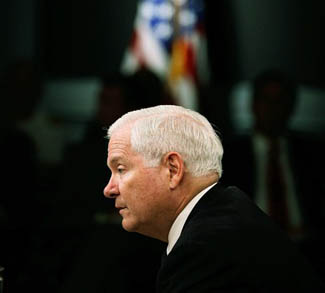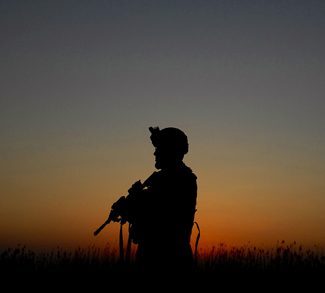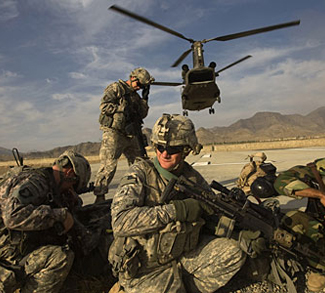At the Pentagon, it is call it “repositioning” of military forces. In fact, this is the great war tour, whose choice spots are in Asia and Africa.
There are U.S. troops departing from Iraq. Immanuel Wallerstein qualifies this departure as a “defeat comparable to that suffered in Vietnam,” because “Iraqi political leaders forced the U.S. to withdraw its troops” and “their withdrawal represents a victory for Iraqi nationalism.” According to him, after two wars, a crippling embargo and eight years of an occupation that caused millions of deaths and inestimable destruction, Iraq comes out stronger and more independent, since it succeeded to impose its will on the world’s largest power.
During the occupation, the CIA and State Department worked exhaustively for “a political solution in Iraq based on federalism,” according to the amendment that current Vice-President Joe Biden obtained from the Senate in 2007. It contemplates “the decentralization of Iraq into three semi-autonomous regions: Kurdish, Sunni and Shiite,” with a “limited central government in Baghdad.” “Decentralization”, which actually amounts to the disintegration of the unitary state, is already underway in the energy sector, with local authorities entering into agreements directly with the multinationals, the majority of which are dominated by the United States. U.S. troops leaving Iraq are not going home, but are largely “repositioned” in other Gulf countries, where the United States has a contingent of 40,000 men, including 23,000 in Kuwait, buttressed by naval and air power. Moreover, in the United Arab Emirates a secret army is emerging at the beck and call of the Pentagon and the CIA. “This robust military presence in the region proves that our commitment to Iraq continues,” says Hillary Clinton.
The plan aims to beef up militarily the monarchies of the region, by creating a kind of “NATO of the Gulf.”
To be used also in Africa, as was already the case with the participation of Qatar and the Emirates in the Libyan war, whereas Iraqi troops will take part in the 2012 regional anti-guerrilla operation Eager Lion in Jordan.
This is the new way of waging war – it is argued in Washington – on the strength of operation in Libya, which has shown how, without sending troops or suffer losses, “the leaders of certain medium-sized powers can be reversed from a distance”, using air and naval weapons and by having our allies bear the heaviest burden.
Among them are the new Libyan leaders who, according to reliable sources, have proposed to NATO the creation of a large permanent military base. The plan, which was in fact concoted in Washington, provides for the presence of 15 to 20 000 troops, including 12,000 from Europe, as well as sizable air and naval contingents, essential for “internal security” and on stand-by for other wars against Iran and Syria.
All this will hit the spot with Uri Avnery, who “blessed” the NATO war in Libya, arguing however that “Libya had liberated itself.” And Farid Adly, who is convinced that “the flag of King Idris, that of independence, is not a symptom of a return to the past,” will be happy to see it floating on a new major foreign base, which will replace that of Wheelus Field granted to the United States by Idris, the “enlightened ruler”, but shut down by Gaddafi, the “brutal tyrant”.



